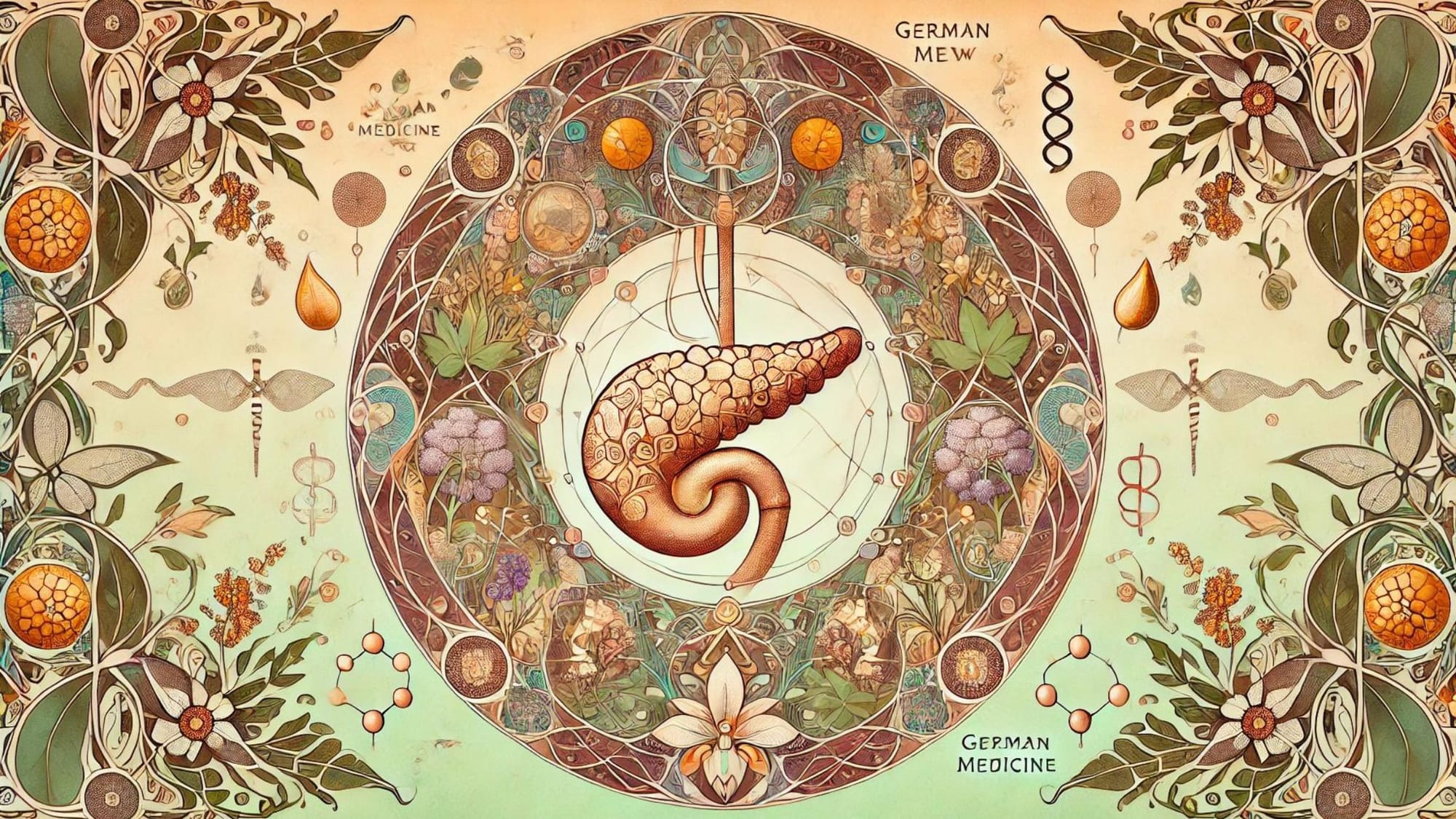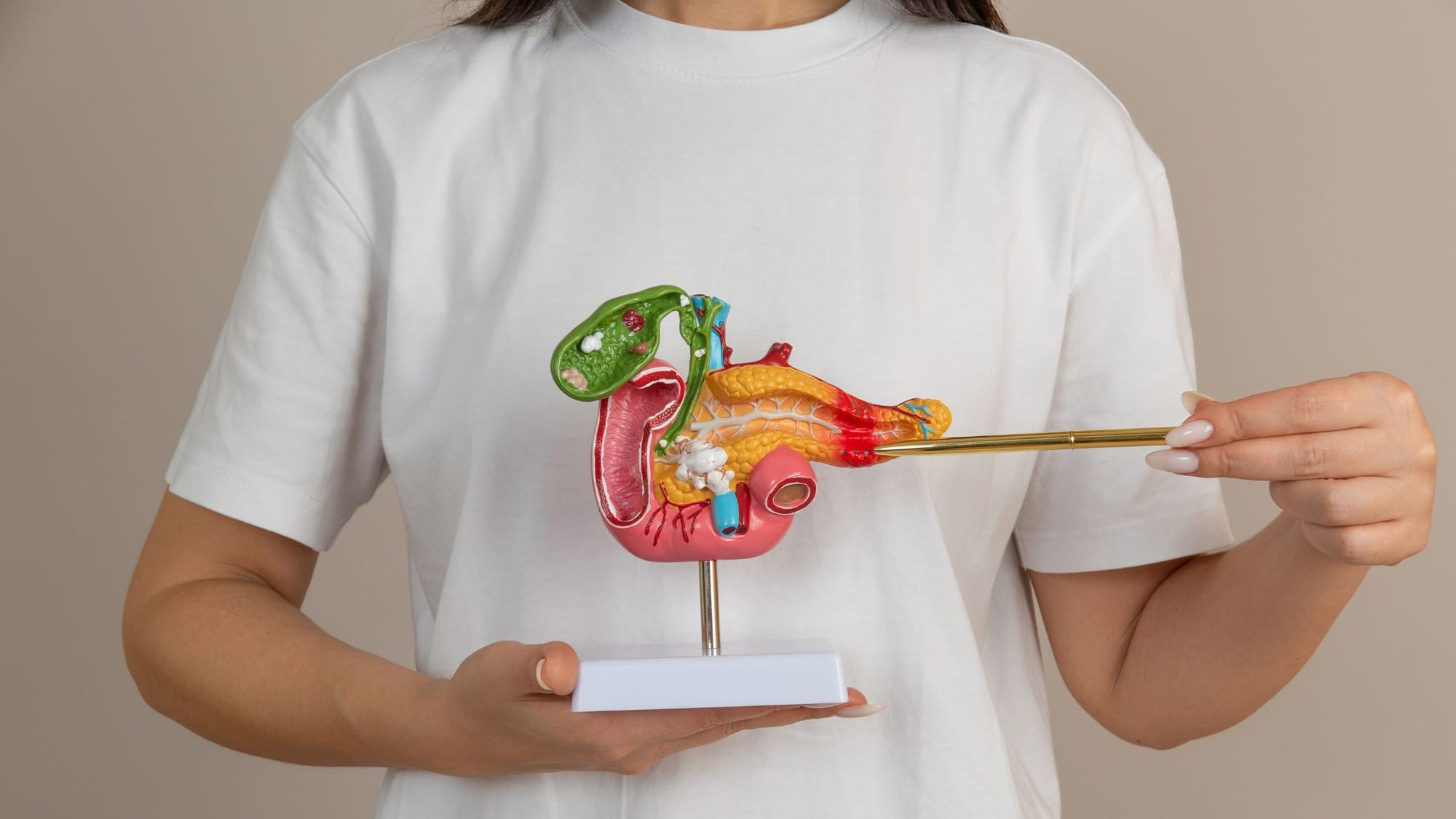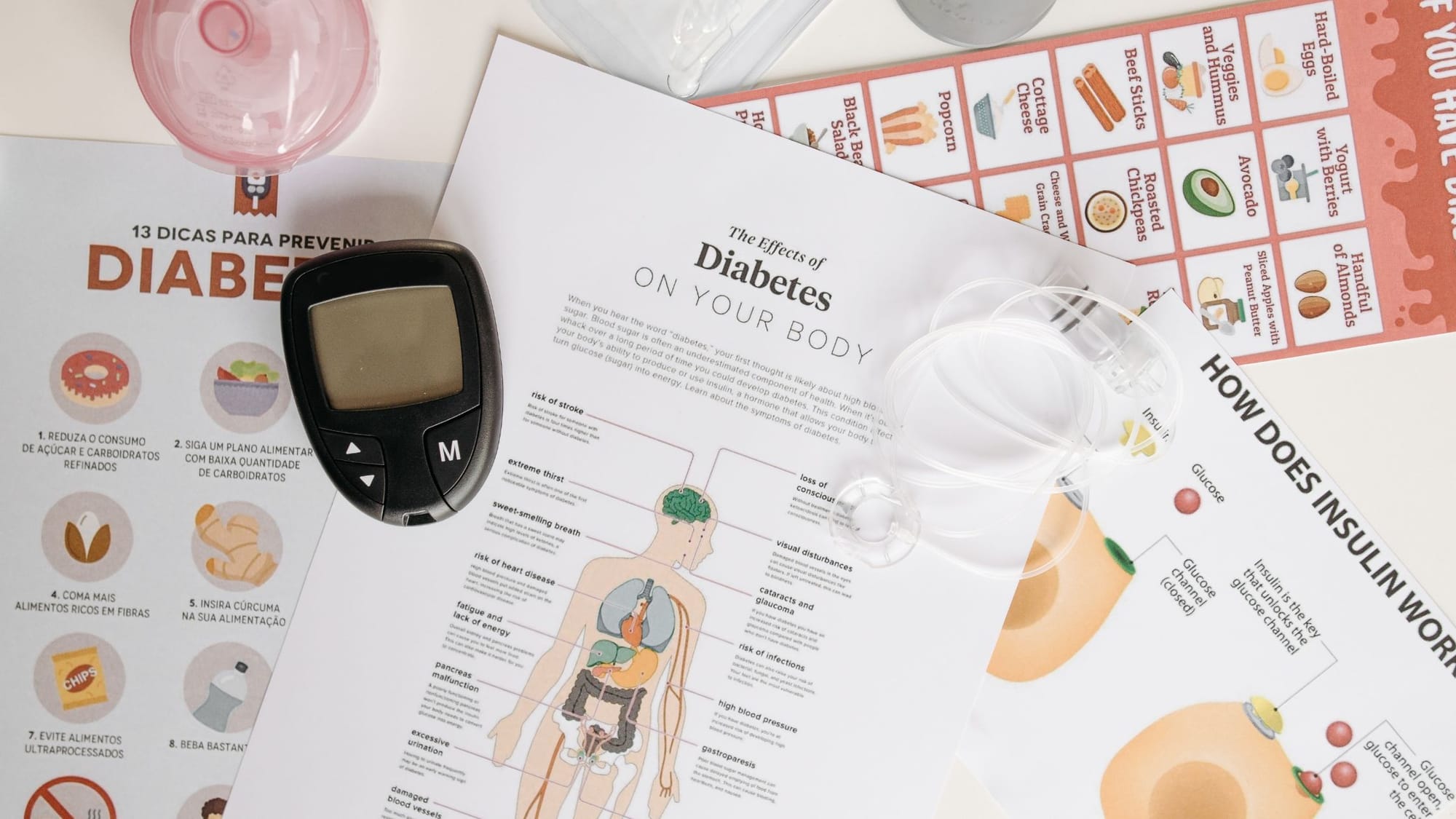German New Medicine 101: Pancreas [Part 13]

German New Medicine (GNM) is an approach that looks at diseases as responses to emotional shocks or conflicts.
The pancreas is an important organ that helps digest food and control sugar levels in the blood, crucial to our physical and emotional health. According to GNM, problems with the pancreas often stem from emotional issues, showing how our feelings can impact our body's key functions.
And in today's German New Medicine 101 series, we'll talk about the pancreas and diabetes.
Table of Contents
What Is The Function Of The Pancreas?
What Are The Main Conflicts Affecting Pancreas?
Pancreas Diseases And Emotional Conflicts Causing Them
German New Medicine: Diabetes
Conflict-Active Phase And Healing Phase In GNM
Therapy Treatment In German New Medicine
Natural Remedies For Diabetes And Pancreas Health
Tips For Managing Pancreas-Related Conflicts
Final Words
FAQs
What Is The Function Of The Pancreas?

The pancreas is a vital organ located behind the stomach. It plays a dual role in the body: it produces enzymes that help break down foods (digestive function) and hormones like insulin and glucagon that regulate blood sugar levels (endocrine function).
In German New Medicine, the brain areas linked to these pancreatic functions are seen as critical in understanding how emotional conflicts can influence pancreatic health. These brain areas are thought to respond to emotional distress by affecting pancreatic function, highlighting the interconnectedness of our emotional and physical health.
What Are The Main Conflicts Affecting Pancreas?
In German New Medicine, the main conflicts that affect the pancreas are:
- Indigestible Morsel Conflict: Linked to pancreatic cancer, this conflict arises when an individual encounters a situation that is metaphorically too difficult to 'digest' or accept.
- Territorial Anger Conflict: Associated with conditions like pancreatitis, this conflict involves feelings of intrusion or violation of personal boundaries.
- Fear of Starvation Conflict: This leads to Type 1 diabetes and is triggered by severe fears concerning survival or not having enough resources.
- Resistance Conflict: Related to Type 2 diabetes, it involves feelings of being overwhelmed or unable to cope with life’s demands.
- Identity Conflict: Affects the pancreatic ducts and relates to deep questions about one’s role or place in life.
Pancreas Diseases And Emotional Conflicts Causing Them
1. Pancreatic Cancer
Emotional Conflict: Intense indigestible anger conflict or inheritance conflict. The conflict often relates to a situation that is metaphorically "too hard to swallow" or a familial dispute over an inheritance that is emotionally charged and unresolved.
2. Type 1 Diabetes
Emotional Conflict: Severe fright or fear of starvation conflict. This could arise from a sudden loss of financial security or any other threat to the individual’s or family’s well-being that triggers a profound fear of not being able to survive.
3. Type 2 Diabetes
Emotional Conflict: Resistance conflict, is often linked with feelings of being overwhelmed or unable to resist a stressful situation. This can also be associated with fears of not being able to cope or manage a demanding life event.
4. Pancreatitis
Emotional Conflict: Anger or frustration is located in the abdomen, often linked to family disputes or territorial anger.
5. Cystic Fibrosis
Emotional Conflict: Severe and ongoing fear of being left or abandoned, often starting in childhood. This emotional conflict might stem from a real or perceived threat of losing a caregiver or close family member.
Read Also:

German New Medicine: Diabetes

Diabetes is viewed in GNM as a metabolic disorder where Type 1 and Type 2 have distinct emotional origins:
- Type 1 Diabetes: Often linked to a "fear of starvation" conflict, where individuals fear for their survival or sustenance. GNM looks at case studies that illustrate how resolving these emotional conflicts can impact the course of the disease.
- Type 2 Diabetes: Associated with "resistance conflicts," related to feeling overwhelmed by life’s demands. GNM literature suggests that addressing these underlying emotional stresses can be crucial in managing or even reversing the disease.
Conflict-Active Phase And Healing Phase In GNM
During the conflict-active phase in German New Medicine, the pancreas may undergo specific cellular changes. For instance, if the conflict involves an "indigestible morsel," there might be a cellular increase to produce more enzymes or hormones to 'digest' or manage the distress.
Once the conflict resolves, the body enters the healing phase. This phase can include inflammation as the body repairs itself, which might manifest as pancreatitis if complications arise. These phases underscore the body's attempt to adapt to and recover from emotional conflicts.
Therapy Treatment In German New Medicine
In German New Medicine, therapy focuses on identifying and resolving specific emotional conflicts associated with pancreatic issues, like the 'indigestible morsel' conflict. Techniques such as art therapy and narrative therapy can be instrumental in helping individuals express and address these conflicts.
Healing in GNM begins once the emotional conflicts are resolved. This concept underscores the importance of addressing these conflicts to potentially reduce symptoms and even reverse conditions, promoting a holistic approach that considers emotional, psychological, and physical health as interconnected.
- Emotional Reconciliation: Techniques such as talk therapy to address fears and anxieties related to survival or resistance conflicts.
- Somatic Therapy: Somatic therapy involves physical movement that focuses on body awareness to help release and manage stress and emotional conflicts.
- Lifestyle Changes: Recommendations might include diet modifications, stress management practices, and regular exercise.
- Integration with Conventional Treatments: GNM approaches can complement traditional diabetes management, such as insulin therapy or medication, by also focusing on emotional health.
Read Also:

Natural Remedies For Diabetes And Pancreas Health

- Bitter Melon: Known for its insulin-like properties that can help in lowering blood sugar levels.
- Cinnamon: This spice can improve insulin sensitivity and blood glucose control.
- Fenugreek: Seeds are high in soluble fiber, which helps to lower blood sugar by slowing down digestion and absorption of carbohydrates.
- Gymnema Sylvestre: Often referred to as the "sugar destroyer," it is believed to help reduce sugar cravings and blood sugar levels.
- Aloe Vera: Known for its glycaemic control capabilities, potentially beneficial for type 2 diabetes.
- Stevia: An excellent sweetener alternative for diabetics as it does not raise blood sugar levels.
- Gynostemma Pentaphyllum (Jiaogulan): Revered for its potential to enhance insulin sensitivity and overall metabolic health.
- Samwa (A desert herb): Though less commonly known, it's used in some traditional medicines for its potential benefits in metabolic regulation.
These remedies should be used with caution and in consultation with a healthcare provider, especially when combined with conventional treatments!
Tips For Managing Pancreas-Related Conflicts
SUPER TIPP: EFT (Emotional freedom technique)
This simple yet effective method involves tapping on specific points on the body, linked to the meridians used in traditional acupuncture. By tapping these points while concentrating on emotional stress or pain, many find significant reductions in anxiety, stress, and physical discomfort.
Please watch the tutorial above to learn more about how you can incorporate this technique into your daily routine for enhanced well-being.
These steps aim to help individuals resolve the underlying emotional conflicts, potentially leading to an improvement in symptoms and overall health:
Recognize the emotional conflict: Recognize and acknowledge the emotional conflict that may be contributing to the pancreatic condition.
Express your emotions: Find safe and constructive ways to express emotions related to the conflict, such as through counseling, journaling, dancing, or creative arts.
Manage your stress: Implement regular stress-reduction techniques, including meditation, yoga, or breathing exercises, to help mitigate the emotional stress that may aggravate the condition.
Get professional guidance: Consult with a GNM practitioner or a therapist who understands the connection between emotional conflicts and physical health to get personalized advice and treatment strategies.
Final Words
Managing pancreas-related issues with German New Medicine means focusing on both your mind and body. Understanding and resolving emotional conflicts can significantly impact your pancreatic health. Using stress relief strategies, consulting professionals familiar with emotional health, and leaning on a strong support network can all help guide you toward better well-being.
Read Also:

Frequently Asked Questions
1. What is German New Medicine about?
German New Medicine (GNM) is an alternative medicine approach that suggests diseases are caused by unresolved emotional conflicts. It emphasizes understanding these conflicts and how they relate to the body's response, aiming to heal by resolving these issues.
2. What is the new medicine for diabetes type 2?
In conventional medicine, new treatments for Type 2 diabetes often include newer classes of medications that improve insulin sensitivity or alter the way carbohydrates are metabolized. Always consult healthcare providers for the latest treatments.
3. What is the GNM method?
The GNM method involves identifying the specific emotional conflicts that are believed to trigger diseases according to GNM theory. It then focuses on resolving these conflicts to aid the body's natural healing process.
4. What is the GNM treatment?
GNM treatment focuses on emotional and psychological healing. It involves understanding the emotional root of disease, addressing and resolving these conflicts, and supporting the body through this process to promote health recovery.
Become a Sista and follow us on Instagram, subscribe to our YouTube channel, and tune into our podcasts on Spotify!


